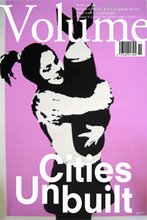Friday, November 07, 2008
Commencement of the Saving Lifta project-campaign in Jerusalem
Between 19th - 26th October 2008, FAST engaged in various appointments with figureheads and organizations in the Palestine/Israel region to initiate the next phase of Saving Lifta project-campaign.
The discussions held included a meeting with figureheads of the Lifta Committee (Hassan A.Shalbak, Ali Hamoudeh, Rabie H. Rabie, Abed Abu-Liel, Husni Salah) and their representative Yacoub Odeh in Ramallah; a meeting with Eitan Bronstein, Director of Zochrot (Remembering) in Tel Aviv; as well as various meetings in Jerusalem - including a trip to Lifta - with 2nd & 3rd generation Lifta activists (Anan Odeh - Human Rights Lawyer, Sihan Rashid, Lena Meari - Anthropologist, Thair Odeh, and Zacharia Odeh - Executive Director of the Civic Coalition for Jerusalem.)
FAST addressed to the Lifta Committee a history of the work undertaken so far in the project-campaign. We discussed the conference that we held on Lifta in Amsterdam 2006, and the international campaigning, such as the proposal of a project to UNESCO World Heritage as well as the application on the World Monument Fund's list for 100 most endangered places. And concluded with our appraisal on Lifta's significance and how she inspired FAST to set about an initiative for regional activism.
FAST agendas not only serve to expose violations in architecture and planning, our aim is to create architectural responses that empower marginalised, segregated and displaced groups, communities and people. To show what has the potential to be possible, whilst considering the human component as the most fundamental criteria.
In Lifta's case, to set about a campaign against the Approved Redevelopment Plan(s) that erase all memory of Lifta, FAST are leading a project to advocate the recognition of Lifta through the creation of alternative plans and an alternative master-plan.
Lifta should be reserved as a special place of conscience, for truth and justice, regarding issues at the very heart of the Israeli-Palestinian conflict. She is a place that bears testimony to the memory of the national catastrophe of the Palestinian people - al Nakba. And a place that can serve as a potential testing-ground for General Assembly Resolution 194; Israel’s obligations under international human rights and humanitarian law to allow and facilitate the return of the Palestinian refugees to their homes. If Lifta was attentively planned, in re-instatement of her recognition and her possibilities as a place, she could play a significant role in the event of a concilatory process and changes needed for peace.
The Saving Lifta project-campaign aim is towards a common vision, for a 'space of reconciliation', using alternative plans and a master-plan that can be articulated and lobbied using both Palestinian & Israeli civil society. The objective is to create regional movement, action and a voice that can monoeuvre the campaign to effect and reposition the Jerusalem Municipality Authority's tops-down prospects on Lifta; anticipating that the project-campaign will be lobbied through the Israeli judicial administration and not under-estimating the possibilty of lobbying as far as the Knesset Parliament.
The next step will see FAST setting out a detailed brief proposing the agendas of the project. The brief will be issued at the beginning of February 2009 to potential participants of the project. Between now and January, working with our partners Yacoub Odeh - a Lifta refugee and Eitan Bronstein - Zochrot, with support from our team of regional Lifta activists, we will reach out to regional organizations, education/research faculties and potential sponsors that can play a key role in this project through their participation (such as building conservationists, legal advocates in environment & planning, civil building and peace activists, and local architecture schools.)
In a period of a week in March 2009 a series of meetings will be arranged to be held in Jerusalem and the region. FAST will present the project agendas and invite potential regional participants to discuss the proposition in context to creative opportunities and their own agendas. We hope (in that week) to resolve forming a two year plan (2009 and throughout 2010) involving a dynamic coalition of participants and supporters, reaching across the divides between Israeli and Palestinian, and making Saving Lifta an eventful yet decisive example of an effort that transcends expectations of the possible.
Anil Korotane, FAST
Subscribe to:
Comments (Atom)
